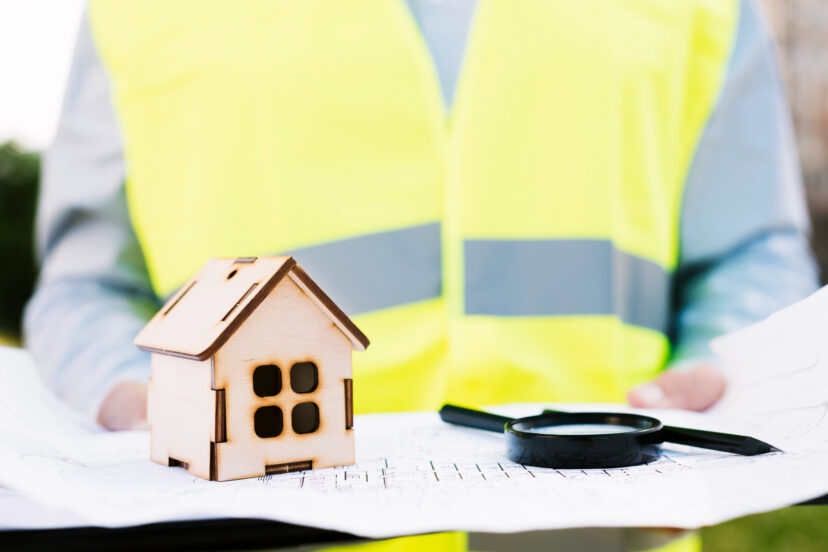Rent-to-Own Property Inspections
Rent-to-own arrangements provide an alternative route to homeownership, allowing tenants to lease a property with the option to purchase it later. While these agreements offer flexibility, they also require careful consideration and due diligence, including property inspections. In this comprehensive guide, we will explore the importance of property inspections and due diligence in rent-to-own arrangements.
The Significance of Property Inspections
Property inspections play a pivotal role in the rent-to-own process, providing numerous benefits for both tenants and property owners. Here’s why they are essential:
1. Property Condition Assessment:
Property inspections offer a comprehensive evaluation of the property’s condition. This assessment identifies any existing issues, needed repairs, or areas of concern. Knowing the property’s condition is crucial for tenants, as it helps them make informed decisions about moving forward with the purchase.
2. Transparency:
Inspections promote transparency between tenants and property owners. They ensure that both parties have a clear understanding of the property’s condition, which helps avoid disputes or misunderstandings in the future.
3. Repairs and Maintenance:
The inspection report often highlights necessary repairs or maintenance. This information allows tenants and property owners to negotiate who will be responsible for addressing these issues during the lease term.
4. Negotiation Leverage:
If the inspection uncovers significant issues, tenants can use the inspection report as leverage in negotiations. They may negotiate for repairs, a reduced purchase price, or other favorable terms based on the property’s condition.
5. Due Diligence:
Property inspections are a form of due diligence. They enable tenants to thoroughly assess the property before committing to homeownership, reducing the risk of unpleasant surprises later on.
6. Legal Protections:
Inspections provide legal protection for tenants. They ensure that the property’s condition is accurately documented, which can be valuable in case of disputes.
7. Peace of Mind:
For tenants, property inspections offer peace of mind. Knowing the property’s condition and that any necessary repairs will be addressed contributes to a more positive and secure living experience.
Types of Property Inspections
Several types of property inspections are commonly conducted in rent-to-own arrangements:
1. General Home Inspection:
A general home inspection assesses the overall condition of the property, including its structural integrity, electrical systems, plumbing, HVAC, and more. It identifies any potential safety or maintenance issues.
2. Pest Inspection:
Pest inspections are essential to uncover any existing or potential pest infestations, such as termites or rodents. Addressing these issues early can prevent significant damage.
3. Environmental Testing:
This type of inspection assesses environmental factors such as radon, lead paint, mold, and asbestos. Identifying and addressing environmental hazards is vital for the safety and health of occupants.
4. Roof Inspection:
Roof inspections evaluate the condition of the roof, identifying any damage or areas in need of repair. A well-maintained roof is critical for the property’s longevity.
5. Structural Inspection:
A structural inspection focuses on the property’s foundation and structural components. It identifies any issues that could affect the property’s stability.
6. Sewer and Septic Inspection:
For properties with septic systems or private sewage systems, inspections assess their condition and functionality. Addressing issues with these systems is essential for proper sanitation.
The Inspection Process
The property inspection process typically involves the following steps:
1. Scheduling the Inspection:
Tenants and property owners should coordinate the inspection, ensuring that it occurs within a reasonable timeframe after the rent-to-own agreement is signed.
2. Hiring a Qualified Inspector:
Both parties should collaborate to select a qualified and licensed inspector with expertise in the relevant inspection types. The inspector should be impartial and unbiased.
3. Conducting the Inspection:
The inspector conducts a thorough assessment of the property, documenting their findings in a detailed report. Tenants are often encouraged to be present during the inspection to ask questions and gain a better understanding of the property.
4. Reviewing the Inspection Report:
After the inspection, tenants and property owners should review the inspection report together. The report outlines the property’s condition, including any issues and suggested repairs.
5. Negotiating Repairs and Responsibilities:
Based on the inspection report, tenants and property owners can negotiate who will be responsible for addressing identified issues and making necessary repairs. These negotiations may impact the terms of the rent-to-own agreement.
6. Documenting Agreements:
Any agreements reached during negotiations should be documented in writing as addendums to the rent-to-own contract. This ensures clarity and legal protection.
7. Continuing with the Agreement:
Once the inspection process is complete and any necessary repairs are addressed, tenants can proceed with confidence in their rent-to-own agreement, knowing the property’s condition has been thoroughly assessed.
Key Considerations
To make the most of property inspections in rent-to-own arrangements, consider the following:
1. Timing:
Inspections should be conducted early in the agreement, ideally within the first 30 days after signing the contract. This provides sufficient time to address any issues and ensures both parties are aware of the property’s condition.
2. Documentation:
The inspection report and any subsequent agreements should be meticulously documented in writing. These documents are essential for legal protection and dispute resolution.
3. Who Pays for Inspections:
The responsibility for inspection costs should be clearly defined in the rent-to-own agreement. In some cases, property owners may cover the costs, while in others, tenants may be responsible.
4. Professional Inspectors:
Ensure that the inspectors are qualified professionals with the necessary licenses and certifications.
5. Local Regulations:
Be aware of any local regulations or laws that pertain to property inspections. Compliance with local requirements is crucial.
Property inspections are a fundamental aspect of rent-to-own arrangements, offering a host of benefits for both tenants and property owners. They provide transparency, allow for necessary repairs and maintenance, and serve as a form of due diligence. Tenants should be proactive in scheduling inspections, hiring qualified professionals, and carefully reviewing inspection reports. By conducting thorough property inspections and addressing any issues early, tenants can proceed with confidence on their path to homeownership.





Comments are closed.